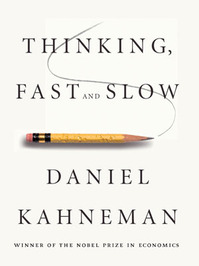George Stigler argued that when most economists were self-funded business practitioners economics was more applied and empirical, while after most economists were academics funded by endowments or the government economics became less applied and more formal. [In a quick search I failed to identify the article where Stigler says this–sorry.] A similar point was made to science more broadly by Terence Kealey in his thought-provoking The Economic Laws of Scientific Research. The article quoted below argues persuasively that research on human genes is aligned with the career survival goals of academics, rather than with either the faster advance of science or the quicker cure of diseases like cancer. The alignment could be improved if more of research funding came from a variety of private sources.
(p. D3) In a study published Tuesday [Sept. 18, 2018] in PLOS Biology, researchers at Northwestern University reported that of our 20,000 protein-coding genes, about 5,400 have never been the subject of a single dedicated paper.
Most of our other genes have been almost as badly neglected, the subjects of minor investigation at best. A tiny fraction — 2,000 of them — have hogged most of the attention, the focus of 90 percent of the scientific studies published in recent years.
A number of factors are largely responsible for this wild imbalance, and they say a lot about how scientists approach science.
. . .
It was possible, . . ., that scientists were rationally focusing attention only on the genes that matter most. Perhaps they only studied the genes involved in cancer and other diseases.
That was not the case, it turned out. “There are lots of genes that are important for cancer, but only a small subset of them are being studied,” said Dr. Amaral.
. . .
A long history helps, . . . . The genes that are intensively studied now tend to be the ones that were discovered long ago.
Some 16 percent of all human genes were identified by 1991. Those genes were the subjects of about half of all genetic research published in 2015.
One reason is that the longer scientists study a gene, the easier it gets, noted Thomas Stoeger, a post-doctoral researcher at Northwestern and a co-author of the new report.
“People who study these genes have a head start over scientists who have to make tools to study other genes,” he said.
That head start may make all the difference in the scramble to publish research and land a job. Graduate students who investigated the least studied genes were much less likely to become a principal investigators later in their careers, the new study found.
“All the rewards are set up for you to study what has been well-studied,” Dr. Amaral said.
“With the Human Genome Project, we thought everything was going to change,” he added. “And what our analysis shows is pretty much nothing changed.”
If these trends continue as they have for decades, the human genome will remain a terra incognito for a long time. At this rate, it would take a century or longer for scientists to publish at least one paper on every one of our 20,000 genes.
That slow pace of discovery may well stymie advances in medicine, Dr. Amaral said. “We keep looking at the same genes as targets for our drugs. We are ignoring the vast majority of the genome,” he said.
Scientists won’t change their ways without a major shift in how science gets done, he added. “I can’t believe the system can move in that direction by itself,” he said.
Dr. Stoeger argued that the scientific community should recognize that a researcher who studies the least known genes may need extra time to get results.
“People who do something new need some protection,” he said.
For the full commentary see:
Carl Zimmer. “Matter; The Problem With DNA Research.” The New York Times (Tuesday, September 25, 2018 [sic]): D3.
(Note: ellipses, and bracketed date, added.)
(Note: the online version of the commentary has the date Sept. 18, 2018 [sic], and has the title “Matter; Why Your DNA Is Still Uncharted Territory.” Where there are differences in wording between the versions, the passages quoted above follow the online version.)
The paper in PLOS Biology co-authored by Thomas Stoeger and mentioned above is:
Stoeger, Thomas, Martin Gerlach, Richard I. Morimoto, and Luís A. Nunes Amaral. “Large-Scale Investigation of the Reasons Why Potentially Important Genes Are Ignored.” PLOS Biology 16, no. 9 (2018): e2006643.
Kealey’s book, praised above, is:
Kealey, Terence. The Economic Laws of Scientific Research. New York: St. Martin’s Press, 1996.





